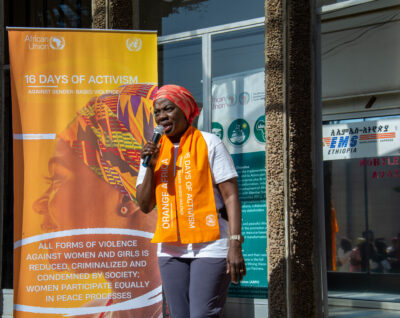On Monday, June 1, the attorney general of the United States ordered the forceful dispersal of peaceful protesters from Lafayette Square—across from the White House—apparently in order to clear space for the president to be photographed in front of St. John’s Episcopal Church holding a Bible. Following a speech on law and order in the Rose Garden, Mr. Trump was apparently moved to illustrate his leadership in a time of crisis by walking across the street to the church, which had sustained fire damage during the previous days, accompanied by members of his cabinet. Predictable outrage has focused on what is seen to be an opportunistic afront to this historic and recently reliably liberal church, possible violations of the Constitution, as well as the presumed ignorance and hypocrisy of the president’s own religious commitments.
The implication of the criticism seems to be that a correct reading of the Bible by a properly educated and informed Christian president would support a liberal politics of reconciliation and would be welcomed. This, in my view, is a most dangerous and divisive game. And it distracts from the sober work that must be done now. Squabbling over the gospel is an expression of what J. Kameron Carter calls “the melancholy of whiteness.”
First. I see no reason to doubt the president’s sincerity in invoking god’s blessing on his work. Sincerity is all that is required of those who would speak legally in the name of religion in US law. Snarky remarks about his familiarity with the meaning of the text are offensive. Many revere many versions of what they take to be its message without having read it. There is no orthodoxy in scriptural reading in the United States. That the Bible also as an object has sacred value is patent. Why should he not want to borrow its charisma? This is America. We do not require a license in order to preach publicly.
The Episcopal bishop of DC scolded the president for his misunderstanding of the gospel and the liberal press reliably reported on other scolds, including the Catholic archbishop of DC. But the bishops do not speak for the church in the United States. The people do. Kellyanne Conway responded on Fox News on Tuesday. Commenting on Bishop Budde’s statement she said, “That is not, quote, her church, that is not, quote, her Bible.” Ms. Conway continued, “We don’t look into other people’s hearts and souls and discern and judge what their faith is.” That’s right. We don’t. We must look elsewhere.
The important story here is not about the president’s religion. Indeed, talk of the church is in many ways a distraction. While there are real reasons to be concerned about the abuse of the power of the presidency in his deployment of law enforcement and military display to disrupt peaceful protests, and in other actions in recent days, it would be a mistake to suggest that the president’s use of the church as a backdrop is constitutionally or legally problematic. Focusing on what is taken to be an abuse of religion perpetuates the dangerously mistaken notion that law can get religion right by protecting good religion and banning bad religion. Whatever you think of his political theology, it has the same rights under the Constitution as any other—and enjoys a long pedigree. If you want to disagree with his reading of the Bible you need to do that by articulating your own political theology and by listening to and talking with his supporters, not by self-righteously correcting them, waving a copy of the Constitution, and putting your faith in the separation of church and state.
There has been a good deal of political grandstanding about churches in the last few months—mostly about their closure during the pandemic. That skirmish is not unrelated, I think. And it connects up with the president’s own corporatist theology. When the president aligns himself with the church he aligns himself with a corporate body, one that increasingly asserts constitutional rights of its own. The US Supreme Court issued an order last Friday, May 29, 2020, finding that California had not violated the First Amendment when it specifically directed churches to close. The majority opinion, written by Chief Justice John Roberts, emphasized the necessarily local nature of public health regulation. A dissent written by Justice Kavanaugh argued that it was unconstitutional to treat churches differently from entities such as grocery stores. “The Church and its congregants,” he says, “simply want to be treated equally to comparable secular businesses.” Following on the Court’s recent decision in the Hobby Lobby case, what Kavanaugh emphasized was the church’s corporate personality in the law. The church as a business.
There is something distinctive about the church in American law and public culture that has little to do with religion. In many ways the church as it has come to figure in American law is a vessel for a political theology founded in a politics of white supremacy and capitalist capture. I call this the “church-in-law.” To speak authoritatively about what the Bible or the church means in American law is to participate in a jurisprudence that has consistently sided with domination over self-determination—in the name of the body of Christ.
The most distinctive aspect of the US constitutional order when it comes to the regulation of religion is the clause in the First Amendment prohibiting the establishment of religion. Other constitutions and international legal instruments speak of the right to the freedom of religion and belief and of the separation of church and state. Disestablishment of religion is a particularly American phenomenon, one that has not resulted in the liberation of religion to grassroots voluntary association by the people, as some of the founders perhaps intended, and many still believe, but in the empowering of the church as a corporate and semi-sovereign entity.
In contrast to the separation of church and state in most other countries, the church in the United States was not successfully domesticated and subordinated to the state, although efforts were made to do that in the early republic; instead it came to be recognized as an independent sovereign alongside its sister sovereigns the state and the corporation. Countless laws give rights to churches as avatars of the church. Other religious bodies also borrow this sovereign power by modeling themselves on the church-in-law.
The media reporting about these events, in my view, misunderstand the nature of the church-in-law in the United States, instead mirroring a culture war framing of religion in the United States that serves a divisive partisan politics and distracts us from the political work that needs doing. Those who would assert the recognition in law of the rights of religion in the United States, wherever they are on the political spectrum, rely on a this-worldly and corporatist political theology developed during the high medieval ages but that continues to have effects in US law through the establishment of the church-in-law. Whether the church is claiming independence of law to protect priests, deny healthcare coverage, or claim the right of sanctuary, the church-in-law in the United States, as a sovereign entity, borrowing charisma from a mystical theology, underwrites a racist religious establishment that has partnered at various points with political and corporate authorities to legitimate a religion of whiteness and exclude other religious ways of life. That is the church-in-law that was on display in front of St. John’s, whatever the president’s intention. It is not that there is no other religion in the United States. But there is no other religion in American law.
For those for whom religion might do other work I suggest that their place is in the street.
Thank you to Courtney Bender, Jeremy Biles, Jay Carter, Constance Furey, Beth Hurd, and Mona Oraby for comments on earlier drafts.













